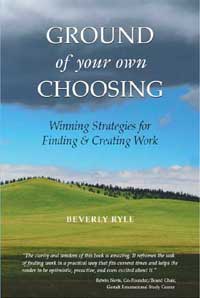 Nowadays Clancy’s is open, but if you passed by any other time of year, you’d think it had gone out of business. And it has, except for the turnips.
Nowadays Clancy’s is open, but if you passed by any other time of year, you’d think it had gone out of business. And it has, except for the turnips.
When I moved here to Eastham a dozen years ago, Clancy’s was a thriving farm stand. It was always manned by a member of the family with whom I enjoyed chatting, usually about the Red Sox. It was there whenever I wanted a sandwich made with tomato fresh from the vine. Trips to Clancy’s were a highlight of my summer.
As the years passed, the amount of produce dwindled and the charm of interacting with the growers was replaced by a weigh-it-yourself scale and a metal box to put your money in. Yet I continued to delight in stopping by there and I treasured the connection to the past it represented.
The last few summers, the rough hewn tables, dilapidated umbrella, and faded OPEN banner have been in a pile and there hasn’t seemed to be anything growing in the fields.
But right now, Clancy’s has customers, lots of them. From Columbus Day through Thanksgiving they come for the turnips. They pull their cars off the highway onto the deeply rutted turnout, select the white-gold orbs from a bin, and stick their money in the slot. Gourmet magazine and the “buy local” movement have made the Eastham Turnip, long known for its light color and sweetness, famous nationwide, and Clancy’s has a cash crop.
Go back to your roots. Play to your strengths. Ask yourself, “What part of my business identity is my ‘cash crop,’ ready to be harvested?”
It also has an important message for anyone in business for themselves or looking for work (which amounts to the same thing): when times are tough, the task of an entrepreneur, whether a business owner or a work-seeker, is to take a good hard look at the lay of the land and figure out how to work it most productively.
ONCE FERTILE
Although it’s hard to believe looking at it, the sand bar that is Cape Cod was once very productive farmland. Turnips have been grown here since the first century of the town’s existence by successive generations of local families, many of them descended from the band of Pilgrims who left Plymouth to settle in Eastham twenty years after arriving on the Mayflower.
“Nauset Indians, Pilgrims and corn seem to stare at each other from out of Eastham’s early years,” a historian writes. The French explorer Samuel de Champlain and others who visited here early in the seventeenth century documented the fertility of the land, and the Pilgrims families who resettled here made the most of Indian corn and great hay marshes. Subsistence was their top priority, but their dream, like all who strike out on their own for greener pastures, was prosperity.
The choice of Eastham proved a good one. For the next century, agriculture dominated the local economy. By the mid-1850s, many Easthamers had turned to the sea—fishing, whaling—to make a living, but farmers continued to harvest asparagus in the spring and turnips in the fall.
As Eastham entered the twentieth century, tourism (and more recently second home ownership) began to replace the land and sea in driving the economy. What’s next, as we enter Eastham’s fourth century, is of course cloudy, but we can learn something important by looking at the past.
When one avenue of growth closed, another was opened by someone with a new idea and the energy to make it happen. In the early centuries of our town, these entrepreneurial initiatives included a windmill for grinding corn, a salt works, and new methodologies that made shell and weir fishing profitable.
Today, business stimulation flows from things like the “OpenCape” initiative directed at building a vendor neutral digital infrastructure to support economic development and public safety on the Cape. This is welcome news for the cottage industry of boomer consultants who have moved or want to move here to work, not retire. Will initiatives such as these be enough to sustain the economy? Eastham’s history, almost 400 years of it, says yes!

CLANCY’S MESSAGE
Go back to your roots. Play to your strengths. Ask yourself, “What part of my business identity is my ‘cash crop,’ ready to be harvested?”
It might be that the quality of one of your products or services, or your reputation in your industry or community, or a particular skill or personal attribute that has helped you succeed professionally before.
I see this happening among my clients when they make the decision to focus on the core values they bring to the marketplace; when one of their business relationships blossoms into a shared project, a partnership arrangement, or an advisory board membership; when they employ their research skills and resourcefulness to find new sources of funding; when the challenges they face serve as a catalyst for developing themselves as leaders.
The landscape many professionals and small business owners view today is as studded with doubt as a New England field is with rocks. Lingering reservations about the economy and the unemployed, underemployed, and uncertainly-employed produce anxiety and complicate decision-making.
It is precisely when we are worn down by successive seasons of lackluster results and are confused to the point of paralysis that turnip farmers have the most to teach us. Keep it simple, is their message. The soil may be poor, but think: what can I plant there that will sell, and how do I keep it growing?







